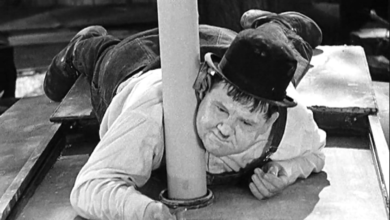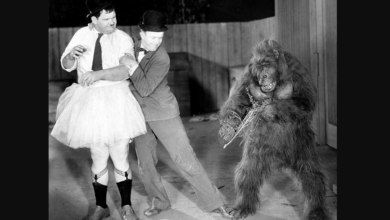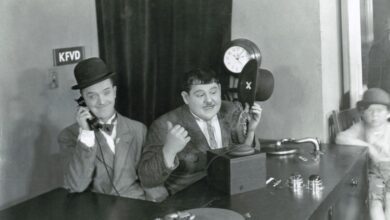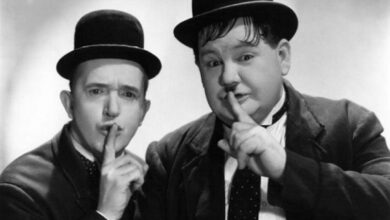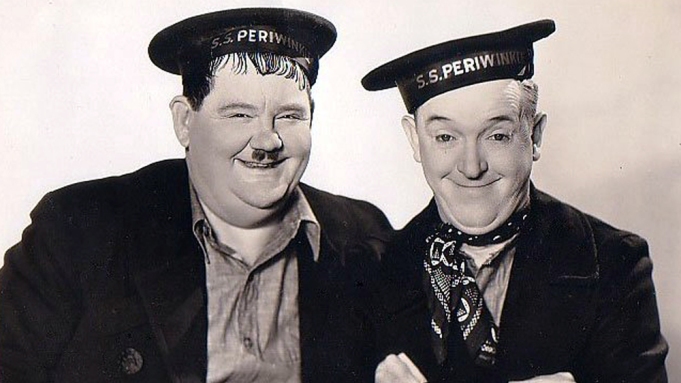Defence pleas on behalf of Laurel and Hardy, the terrorists who lost their way
Usman and Haddadi have been the Laurel and Hardy of this trial. Without the laughter.
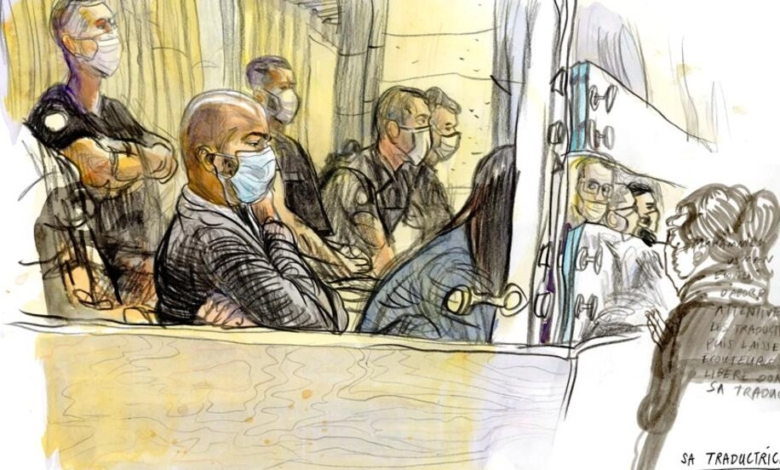
On Wednesday, the special criminal court trying Paris attacks suspects got into the red zone, with final presentations from the defence lawyers representing Muhammad Usman and Adel Haddadi. They are would-be terrorists who admit they were part of the Islamic State machine in Syria, and who returned to Europe as IS combatants, destined to die.
These are the guys who got lost along the way. They left Syria with the two Iraqis who would blow themselves up at the Stade de France on 13 November 2015, launching a night of terror which would cost 132 people their lives.
The Greek border guards were not impressed by the fake Syrian identity cards carried by Usman and Haddadi. The pair, mercifully for all concerned, missed their date with destiny. They were subsequently arrested in Austria. Another fine mess.
Last Friday, the French attorney general rejected the Laurel and Hardy image, saying that these were two ideologically determined jihadists, committed to the terrorist cause, calling for them both to serve the maximum sentence of 20 years.
“We are not going to ask you to set our client free,” Muhammed Usman’s lawyer, Karim Laoufi, assured the court, to general amusement. I couldn’t see if Muhammed Usman understood the joke. Born in Pakistan, he speaks the French he has learned in prison. He has an Urdu-speaking court translator.
A dramatic change in outlook
Accepting that Usman’s background and education in a traditional Muslim family in rural Pakistan had inclined his client to some dark and dangerous ideological positions, Maître Laoufi asked the court to see Usman as he is today, changed by his observation of the French prison and judicial systems. In six years, he has seen nothing else.
But he has had the time to reflect, to change.
“And that change has been dramatic,” Karim Laoufi assured the judges. “Muhammad Usman has learned to smile.
“The human spirit is reversible.”
The forgotten man of this trial
Muhammad Usman’s second lawyer, Edward Huylebrouck, called his client “the forgotten man of this trial”.
He sits in the same corner of the box every day. He has not been heard since 25 January. He didn’t have a lot to say then.
He was not a planner, not a co-author, not a bomb-maker, not an arms supplier, not a counterfeiter, not a renter or driver of cars. Not this, not that, not the other.
He is a negative man.
“He could have, he might have, if, if, if, if, if . . . the conditional indicates a doubt, which normally leads to acquittal. Here, it has become the sole basis of accusation.
“Before the law was changed during the Algerian war of independence,” Maître Huylebrouck reminded the court, his client would not have been charged at all because, “before 1960, intention was not regarded as a crime”. It was a risky reference.
“He was not a late arrival. He never showed up at all. In the light of what Muhammad Usman actually did in the November attacks . . . nothing . . . we ask for a reduced sentence.”
The absolute poverty of a lost prisoner
Mohammed Usman has a third defender. His name is Merabi Murgulia, a lawyer attached to the Paris bar.
He spoke, without notes, without sentimentality, with passion, about French prisons and the conditions under which his client is detained.
“Three years in solitary confinement. No visits, no friends, no family. He does not know where he is. He suffers from what we call ‘absolute poverty’, a condition he shares with five percent of French prisoners.
In six years in the French capital, Mohammed Usman has glimpsed just one of the sights of Paris, “a huge arch” which he saw while being transferred from a broken-down prison vehicle on the Champs Elysées.
“At this trial we have tasted the sadness of the accused, the sadness of the victims. We have drained that cup to the dregs.
“You, the judges, are asked to set an example. That does not mean you have to be severe.”
The prisoner who helped the prosecution
“Adel Haddadi occupies a special position at this trial,” said his first defender, Maître Simon Clémenceau.
“He has spoken freely, he has cooperated. His evidence has enabled the investigation to proceed. He has helped to give this case a structure.
“He has made an enormous contribution to the establishment of the facts.
“Adel Haddadi was the one who identified Oussama Atar as the mastermind of the attacks.
“Paradoxically, we have never stopped asking him about things he could not have done.
“There are plenty of hypotheses about my client, but no proof.
“He is accused of having been an Islamic State fighter? In one thousand pages of evidence, there is not a word, not a photo, which will prove that.
“He has broken the pact of silence. That is proof of his disengagement from Islamic State. You hold his destiny in your hands.”
A real nowhere man
Maître Léa Tordilly then spoke of Adel Haddadi’s personality.
She sketched an image of immaturity, of submission, an individual easily influenced by others. Someone manipulated, not manipulative.
“We don’t know everything,” said Maître Tordilly, “and certainly not about the inner workings of Adel Haddadi.
“But he clearly had a problem with powerful authority, with the men who drove Islamic State’s projects.
“In calling for the maximum penalty permitted, the prosecution is punishing a character weakness as if it was a sign of rabid determination.
“What is the point of all this? The questions, the experts, the reports. The prosecution swept it all aside. Why are we here?
“There is no violence in the character of Adel Haddadi,” Léa Tordilly continued. “He is working on his personality structure with psychological specialists in prison.
“In his own expression, he is trying to become a real person.
“You cannot let this man disappear.”
The trial continues.

